The world of surfing can be life-changing. Spending time immersed in nature while experiencing the thrill of riding a wave is breathtaking, and to some, second to none.
Many surfers spend time in the ocean because of the relaxing result.
However, when done recklessly, surfing can become extremely dangerous.
In order to keep safe while surfing, it is important to gain a strong knowledge of how the ocean works, be confident in a body of water, understand your equipment, and most importantly, follow the etiquette that has been created around the sport.
Surfing does not need to be overly dangerous if you take the correct steps to remain safe.
This is why we have compiled a list of tips for you while you surf, and some things you should avoid to keep yourself and others safe while in the water.
- 34 Tips to Surf Safely
- 1. Know Your Limits
- 2. Don’t Surf Alone
- 3. Tell Others Where You Will Be
- 4. Always Check the Weather
- 5. Look at the Surf Report Before Leaving Home
- 6. Watch the Waves Before Entering
- 7. Understand Rip Currents
- 8. Surf Between Lifeguard Flags
- 9. Know the Break
- 10. Be Aware of the Ocean Floor
- 11. Learn to Keep Your Eyes Open
- 12. Don’t Surf With Contacts
- 13. Avoid Surfing in Highly Polluted Water
- 14. Don’t Surf with Open Wounds
- 15. Always Rinse with Fresh Water
- 16. Get Out of the Water if You Injure Yourself
- 17. Don’t Surf When You’re Sick
- 18. Don’t Overexert Yourself
- 19. Drink a Lot of Water and Always Eat Before Surfing
- 20. Be a Competent Swimmer
- 21. Maintain a Good Level of Fitness
- 22. Use a Leash
- 23. Use the Correct Wetsuit
- 24. Protect Yourself From the Sun
- 25. Choose the Time of Day Wisely
- 26. Master the Art of Duck Diving
- 27. Learn How to Kick Out
- 28. Avoid Dangerous Surfers
- 29. Understand Surf Etiquette
- 30. Be Friendly to the Locals
- 31. Always Wax Your Board
- 32. Use a PFD When Surfing Big Waves
- 33. Don’t Surf Intoxicated
- 34. Leave Your Ego at Home
- Conclusion
- You Might Also Like…
34 Tips to Surf Safely
1. Know Your Limits
No matter what you do in life, it is important to know your limits and stick to them.
Yes, in order to improve you need to push your limits, but this should be done slowly and with caution.
If you are new to surfing then you should avoid surfing in large swell, crowded beaches, or on complex breaks such as dry reefs.
If you are ready to face larger waves or something more complex such as a point break, then make sure to bring a more experienced friend along with you.
Pushing yourself far beyond your limits is dangerous and should be avoided.
As the common saying goes: Don’t jump into the deep end if you can’t swim.
2. Don’t Surf Alone
Entering the ocean alone can be a dangerous activity, especially if you are not a common sea goer.
Yes, surfing alone is an amazing experience and all experienced surfers should at least consider it.
However, if something does go wrong, there will be no one around to help.
If you are new to surfing, are surfing at a new spot, or the conditions are more challenging than you are used to, then you should avoid surfing alone.
If you wish to experience surfing alone, then consider the day, weather, and water conditions deeply before entering the ocean.
3. Tell Others Where You Will Be
Whether you are going surfing alone or as a group, it is a good idea to let others know where you are going and how long you intend to go.
Although surfing as a group is safer, anything can happen in the ocean or during your journey to and from the beach.
When others know where you are it creates a safety net for you and your friends if anything is to go wrong.
4. Always Check the Weather
The weather can change quickly, especially when living by the coast.
What starts off as a sunshiny offshore wind day can quickly turn into a pumping cross-shore wind that pushes you miles down the coast.
Getting caught unexpectedly by the weather can become a dangerous situation very quickly.
Before heading to the beach, make sure you have taken a look at a weather report, not only for the next few hours but for the entire day.
Although wind is important for surfing, too much can become a problem and leave even the most experienced surfers in a sticky situation.
Furthermore, heading to the beach when the weather is warm may leave you underprepared if the conditions become cooler.
Or alternatively, heading for a cold water surf on a cloudy day could leave you with heat stroke if the weather becomes too hot.
5. Look at the Surf Report Before Leaving Home
Just as you should look at the weather report before surfing, so should you look at a surf report.
Not only will the surf report tell you where the best spot to surf is, but it will help you prepare for the conditions you will be facing.
Heading down to the beach as a beginner only to find crushing 10-foot waves could be a problem.
Yes, if you are staying to your limits you will know it is not a good idea to paddle out, but after traveling a long distance to the beach you may be tempted to try your luck.
Checking the surf report is also important because swell size can quickly change throughout the day.
You may be sitting at the backline comfortably surfing 5-foot waves and the next thing you realize the swell has doubled in size.
If you do not expect this and do not know what you are doing, this may leave you in a panic, which is the last thing you want when you are out in the ocean.
6. Watch the Waves Before Entering
It is common to see surfers running down to the water.
This may make you assume that they are diving in without a second thought, but this is not the entire truth.
Surfers that run down to the water have likely spent time in the car park or at a vantage point observing the waves, how they break, where they break, where others are surfing, and where it is best to paddle out.
You should do the same. Never enter the ocean before assessing the situation.
If you know where the waves are breaking and how to get past the break then you are automatically safer when entering the water.
7. Understand Rip Currents
Rip currents cause more ocean drownings than any other factor.
It is true that surfers do not often drown due to these currents, but rather regular beachgoers and ocean swimmers.
That being said, understanding how rip currents work is a must for all surfers.
Being caught in a rip current does not need to be dangerous, however, panicking in a rip could lead to exhaustion.
Running out of energy in the backline can be life-threatening.
Learning how to use a rip current will both help you save energy while paddling out and help you relax when caught unexpectedly in one.
8. Surf Between Lifeguard Flags
When there are lifeguards on a beach and you intend to surf, listen to the recommended surf area and surf in between the flags.
Lifeguards put the flags up for a reason. This reason may be due to currents, rocks, or simply because they cannot watch what is happening outside of the flags.
Yes, at times you may want to venture outside of the flags because of where the waves are breaking, but if you do this, you should do so with caution and not alone.
9. Know the Break
Knowing the break you will be surfing is a must for safety while surfing.
You need to know where the rocks are, how the currents work, where the sandbanks or reefs lie, what sea life is around, and the best tides to surf the break.
The more you know about a particular break, the less chance there is of something surprising you.
Furthermore, if you are surfing a new type of break, then do your research on break-specific cautions.
For example, if you have only ever surfed on a sandy-bottomed sandbank break and plan to explore a nearby reef, you should ask for advice from others who have surfed there before and do some research on how to stay safe while surfing reefs.
It may seem tedious, but the small amount of effort will be worth it once you enter the sea.
10. Be Aware of the Ocean Floor
Being aware of what is underneath you while you surf is important and will change the way you surf.
Not only is what the ocean floor is made from (sand, coral, rock, etc.) but the depth of the water makes a huge difference.
When surfing on a shallow reef, a deep duck dive will drive the nose of your board straight into the rocks or coral.
This will not only damage your board, but you have a big chance of doing some damage to your face as well.
If you know what the ocean floor is made from and how deep the water is, it will give you a chance to prepare.
For example, if you plan to surf on a point break or dry reef, you will likely end up standing on some rocks at some stage.
These rocks are not only sharp, but sea life such as urchins may also be present.
If you are aware of this, then you can plan by wearing shoes or booties to protect your feet while surfing.
11. Learn to Keep Your Eyes Open
Keeping your eyes open while underwater is not a must while surfing, although it will give you an advantage.
Not only will keeping your eyes open allow you to know when a wave has passed you by while duck diving, but you will be able to see how far away you are from the ocean floor.
This is particularly important when surfing in shallow waters.
Yes, opening your eyes in the ocean for long periods can result in red eyes, but it will ultimately be safer than hitting your face into a rock.
12. Don’t Surf With Contacts
Many surfers struggle with their vision and as a result, need to use glasses or prescription goggles to see while surfing.
Although on land contact lenses are often the best option, in the ocean they can lead to infection and in some cases further vision loss.
It is highly inadvisable to use contacts in the ocean, but if you do, you should keep your eyes closed while underwater and throw them away after your session.
13. Avoid Surfing in Highly Polluted Water
Almost all coastlines have a level of pollution, especially those that are close to cities.
Because of weak infrastructure in terms of sewage or simply to save money, a lot of wastewater is pumped into the ocean – even in western countries.
Although in low levels this is not life-threatening, in some cases the level of bacteria becomes more dangerous than it is worth.
Surfing in highly polluted waters can cause anything from nausea and an upset stomach to life-threatening infections, vision loss, and intense poisoning.
Garnier Beach Park in Florida is just one example of a beach that should be avoided.
The waters of the ocean in this area are highly polluted and should be avoided at all costs.
83% of water tests in this area are above the national safety average.
14. Don’t Surf with Open Wounds
As mentioned above, the ocean is full of bacteria.
This is not avoidable, but in most cases, when the bacteria is just topical, it will not cause a problem.
This changes when the water is able to enter our bodies through ingesting it or when entering through an open wound.
It is common to find flesh-eating bacteria in and around coastlines.
When this bacteria makes contact with open wounds, it prevents the wound from healing, and eventually, if untreated, can lead to blood poisoning and death.
Because of this, you should avoid surfing with any open wounds, even those as small as the small holes caused by a new tattoo.
To further exaggerate the importance of not surfing with open wounds…sharks.
15. Always Rinse with Fresh Water
Technically not a tip that can be used to keep yourself and others safe while surfing, but worth mentioning as it is closely related and important nonetheless.
You should always shower with fresh water after a surf, or at the least rinse yourself off.
Rinsing with fresh water after spending time in the ocean will remove any bacteria that has stuck to your skin.
Rinsing off the salt will also prevent your skin and hair from drying out and becoming itchy.
16. Get Out of the Water if You Injure Yourself
It may seem obvious, but getting out of the water if you hurt yourself is always a good idea.
Because surfing is a highly demanding sport, a simple injury can quickly turn into something worse.
For example, feeling pain in your elbow may not seem like too much of a problem, but this can quickly develop into tennis elbow, which will leave you out of the water for weeks while it repairs.
Another example would be lacerations from fins or rocks, or a simple nose bleed from hitting your face on your board.
As you likely know, blood attracts sharks, which is never great when you’re surfing.
Surfing when you are not with full health or maximum capabilities can be dangerous.
This may not seem to be a problem, but anything can happen in the ocean, and if you find that you need to quickly get out, you may not have the strength to do so.
17. Don’t Surf When You’re Sick
Just as you should avoid surfing when injured, so should you avoid surfing when you are ill.
It is true that exercise will boost your immune system and result in a stronger healthier body.
But performing an intense exercise like surfing while ill can quickly lead to you over-exerting yourself.
When we are sick, our bodies need energy to recover. Not allowing ourselves to do so could extend the illness, but in extreme cases cause further health issues.
18. Don’t Overexert Yourself
Over-exertion is the number one cause of drownings.
The reason rip currents cause so many deaths is not because they pull you under, but because swimmers, and at times surfers, run out of energy and can no longer keep their heads above water.
Over-exerting yourself is dangerous at most times, but when in the ocean, you add the drowning factor.
Add to this large crushing waves and no energy to paddle away from them and you have a recipe for disaster.
It is important to stay in tune with your body and how much energy you have.
For example, if you enjoy working out in the gym before surfing, then you should create a fine balance between the two so that you do not find yourself in the ocean with no energy to remain safe.
19. Drink a Lot of Water and Always Eat Before Surfing
Food is energy, and you need energy to surf.
Whether you are a bodybuilder, rock climber, or simply enjoy a calm afternoon surf, it is always a good idea to eat before.
This is not to say that you should be eating a huge meal that leaves you half comatose, but a few pieces of fruit or a light meal will make all the difference to your energy levels in the water.
This will help you avoid becoming overworked in the water and prevent cramping while surfing.
20. Be a Competent Swimmer
You do not need to be an expert competitive swimmer to surf safely, but you should have strong swimming capabilities and be confident in the water.
Almost all surfers are good swimmers, which is why facing large waves does not seem as daunting to them.
Entering the ocean when you are not a good swimmer is a terrible idea.
Although your surfboard will act as a flotation device, there is always the chance that your leash will snap and you will need to swim yourself back to land.
21. Maintain a Good Level of Fitness
Surfing is an intense sport that provides both anaerobic and aerobic exercise.
Because of this, you will need to be reasonably fit before you take on the extreme sport.
Yes, surfing will help increase both your fitness and strength, but if you cannot paddle out without losing your breath, then you are putting yourself in an incredibly dangerous situation.
If you feel you are not fit enough to surf, then it is best to increase your physical activity before attempting to face the waves.
22. Use a Leash
Using a leash is a must for surfing safety.
Your surfboard is your flotation device, and keeping it attached to you is highly recommended.
Surfing without a leash, especially in large swell can quickly leave you stranded in the backline with no surfboard.
More importantly, however, is the safety of other surfers in the water.
Not using a leash while surfing around others greatly increases the chances of your board hitting others.
Your board and where it ends up is your responsibility. Unless you are in small swell with no one else around, you should use a leash at all times.
Even the pros make use of a leash while in competition.
23. Use the Correct Wetsuit
Your choice of wetsuit not only plays a role in your comfort while surfing, but plays a big part in your safety.
Surfing in a wetsuit that is too thin can quickly lead to you becoming too cold, and eventually hypothermia.
On the other hand, surfing with a 7mm wetsuit in tropical waters is a recipe for heatstroke.
You should always pay attention to the temperature of the water, as well as the weather before choosing which wetsuit is best for the day.
24. Protect Yourself From the Sun
The sun is a major cause of cancer and should be treated as such.
As surfing is usually done in the heat of the day, it is important to take precautions.
Using a hat while surfing, sunscreen, and surfing with a rash vest (when not using a wetsuit) are all good ideas.
You should also avoid surfing at mid-day if possible, and stay out of the sun if you have become burnt.
It is true that the combination of sunlight and saltwater will begin to give you that sometimes desired surfers hair look.
But too much sun will quickly destroy your skin and eventually lead to irreversible damage.
25. Choose the Time of Day Wisely
Whether you are surfing in the morning before work, at sunset after work, riding waves in the quiet of the night, or hitting the waves at mid-day, the conditions and risks will always vary.
Surfing in the morning is likely to be quieter and have less wind, although this is a prime time for sharks.
Surfing in the middle of the day is likely to be the windiest time of the day, as well as the hottest.
Surfing at sunset is once again a great time to find yourself surfing with sharks, and will likely come with many other surfers as they hit the waves after their day at work.
Surfing at night will by far be the quietest time to surf, but as there are no lights, it is also the most dangerous.
You should always think about the time of the day you will be surfing and choose your surfboard, wetsuit, and surf buddies accordingly.
26. Master the Art of Duck Diving
Apart from learning how to stand up on a surfboard, learning how to duck dive is a complicated task, and learning how to master it is even harder.
Although mastering the duck dive may be a challenge, once you can duck dive deep and with good timing, your safety in the water will greatly increase.
If you cannot successfully pass by oncoming waves, you will find yourself constantly being thrown around.
This will quickly lead to exhaustion, and send your board flying in all directions.
If you can’t duck dive, then it is best to practice in small swell until you have a solid technique.
27. Learn How to Kick Out
There are a few essential skills that are necessary to learn in order to keep yourself and others safe while surfing, and one of these skills is learning how to kick out.
Kicking out is simply being able to opt-out of a wave you are riding by exiting through the back of a wave.
This is important if you accidentally drop in on another surfer or you are facing a chance of collision.
If you have not learned how to exit a wave safely, then the chance of colliding with another surfer greatly increases, and therefore your chance of becoming injured is greater.
28. Avoid Dangerous Surfers
It is one thing to be a safe surfer, but being safe yourself does not always keep you safe from others.
If you find yourself in the ocean with surfers who do not adhere to the surfing etiquette rules, it is best to avoid them altogether.
It is better to move to a different spot, even if the waves are not breaking as well, instead of putting yourself in danger because of the actions of others.
29. Understand Surf Etiquette
Surf etiquette is essential to the safety of yourself and others while in the ocean.
There are many unspoken rules in the surfing world, some of which are constantly broken by disrespectful, ignorant, or new surfers.
Some of these rules are as follows:
- Wait for your turn in the lineup (learn who has priority).
- Don’t drop in on other surfers.
- Don’t throw away your board (your surfboard is your responsibility).
- Communicate while you are on a wave or when you are paddling for one.
- Don’t paddle through the lineup (you should paddle around the waves).
- Respect the beach and the ocean.
- Give respect to other surfers in order to gain respect.
Although not all of these rules are directly related to safety, breaking them will likely end you in some trouble with the locals of the area.
30. Be Friendly to the Locals
Making friends with the locals is one of the best things you can do to ensure your safety in the water.
Not only will this help you avoid an angry confrontation because “you do not belong at the break”, but local surfers will teach you the best way to ride a break, how to get out safely, and provide tips that will otherwise take you hours, if not days to discover.
31. Always Wax Your Board
Surfing without wax or a trackpad on your board is tricky.
If you do not put enough wax on your board with the correct technique you will find yourself constantly slipping and falling.
This is not only frustrating, but will become dangerous to yourself and other surfers around you as your board will constantly be flying in all directions.
32. Use a PFD When Surfing Big Waves
Surfing can be dangerous at the best of times, but when the wave size increases, these dangers become greater.
If you are surfing a large swell (20ft +), then you most likely have a strong grip on how to stay safe in the ocean.
That being said, it may be a good idea to wear a PFD while riding the monsters.
As you cannot surf with a life jacket, inflatable jackets are a great substitute to get you back to the surface when facing a long hold down.
33. Don’t Surf Intoxicated
Surfing drunk, or under the influence of any mind-altering substance, is not a good idea.
The ocean changes quickly and you should always have your wits about you.
When intoxicated, we are slower to react and tend to put our cautions aside.
Doing this is not only irresponsible for your own safety, but is disrespectful to others as you also put their health in danger.
34. Leave Your Ego at Home
Surfing is often an ego-driven sport, but there is no place in the ocean for a massive ego.
Your ego will get you hurt and leave you in situations that you are not fully prepared for.
When surfing, you should always stay modest, keep to your limits, and show others respect, even if they don’t do the same.
Conclusion
Yes, surfing is an extreme sport and can be dangerous, but following surf etiquette and applying the above safety tips will leave you safe in the water.
Of course, mistakes can happen, but by following simple “rules” you will greatly decrease the chance of something going wrong.
You Might Also Like…
-

Do Surfers Ride Switchfoot? 5 Benefits (& Why You Should Learn It)
-

Do Surfers Shave Their Legs? 5 Common Reasons (+Pros & Cons)
-

Do Surfers Wear Helmets? 8 Situations You Should Wear One (+4 Cons)
-

Do Surfers Poop in the Ocean? Myths & Facts (+5 Tips)
-
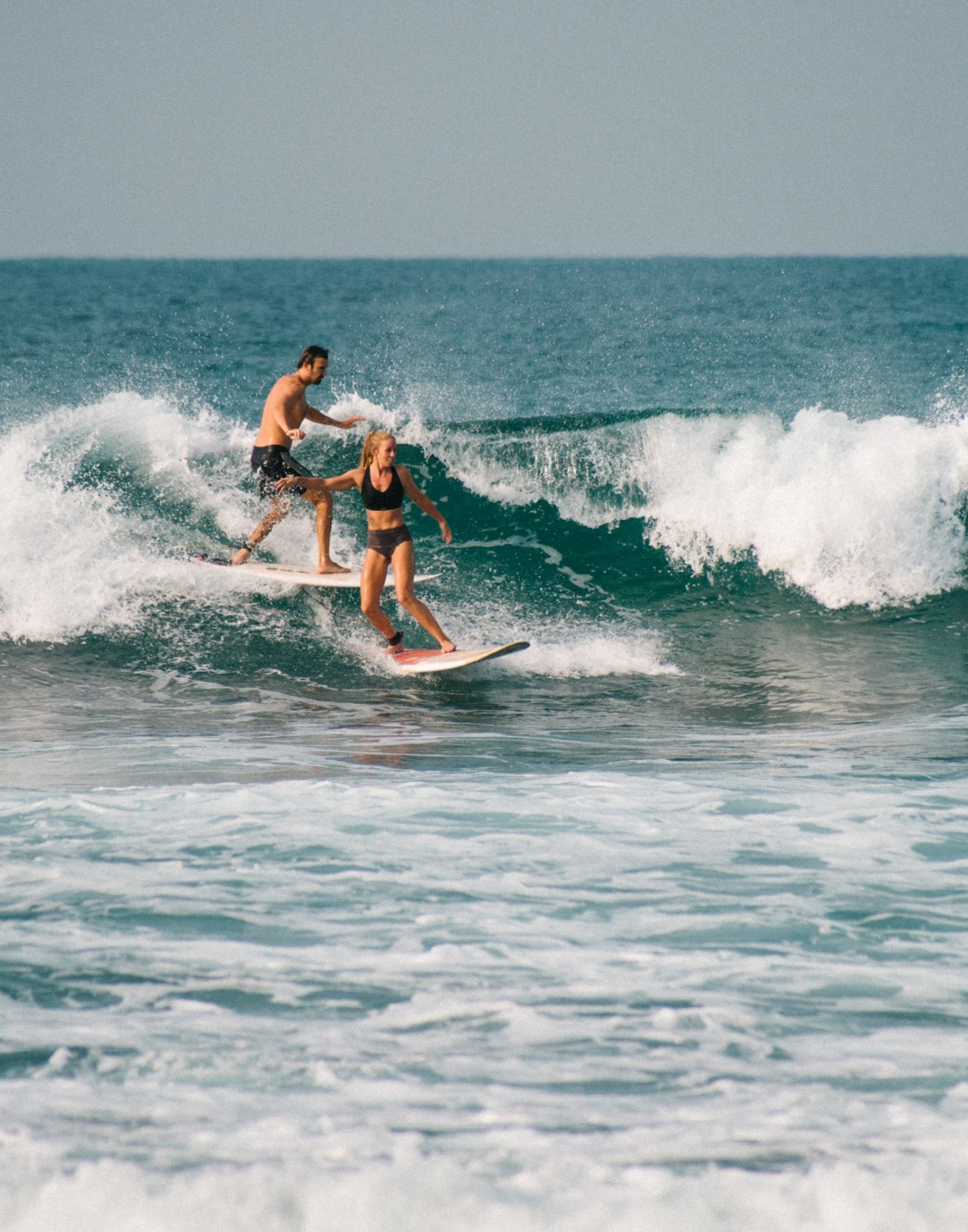
Do Surfers Run Into Each Other? 5 Common Reasons (+8 Tips)
-
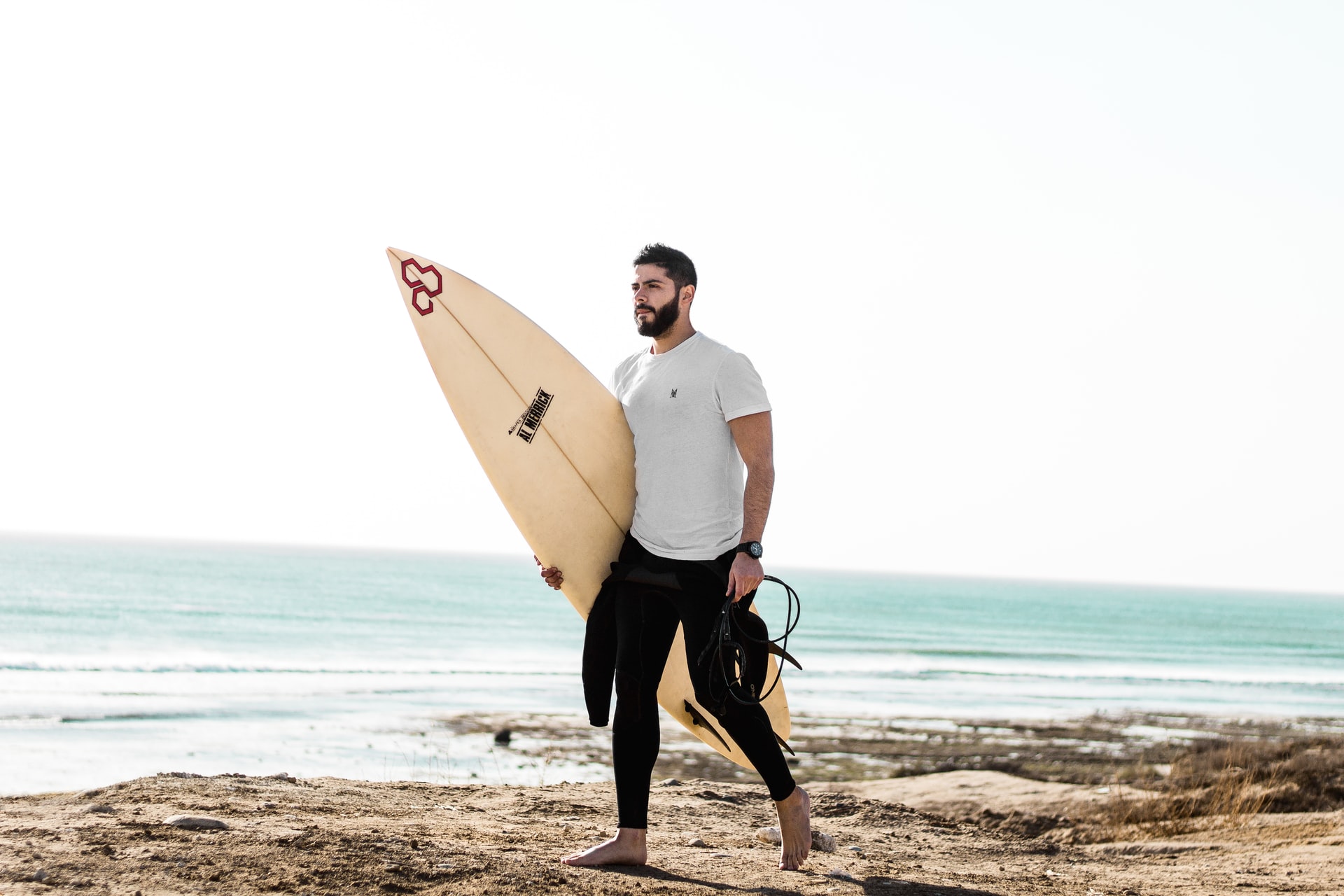
Do Surfers Have Beards? Pros & Cons You Should Know (+4 Tips)
-
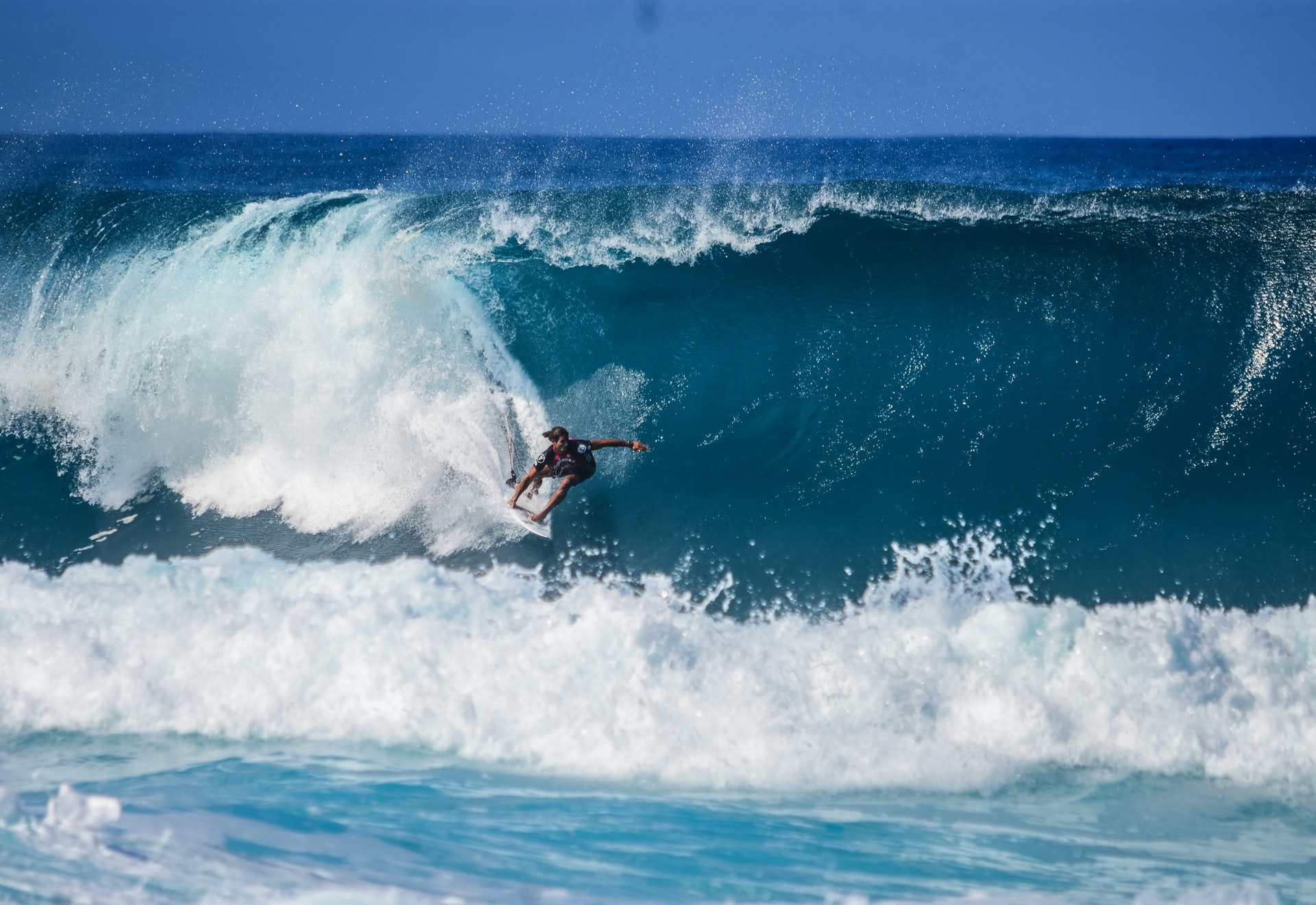
Do Surfers Like Constructive or Destructive Waves? (+Pros & Cons)
-
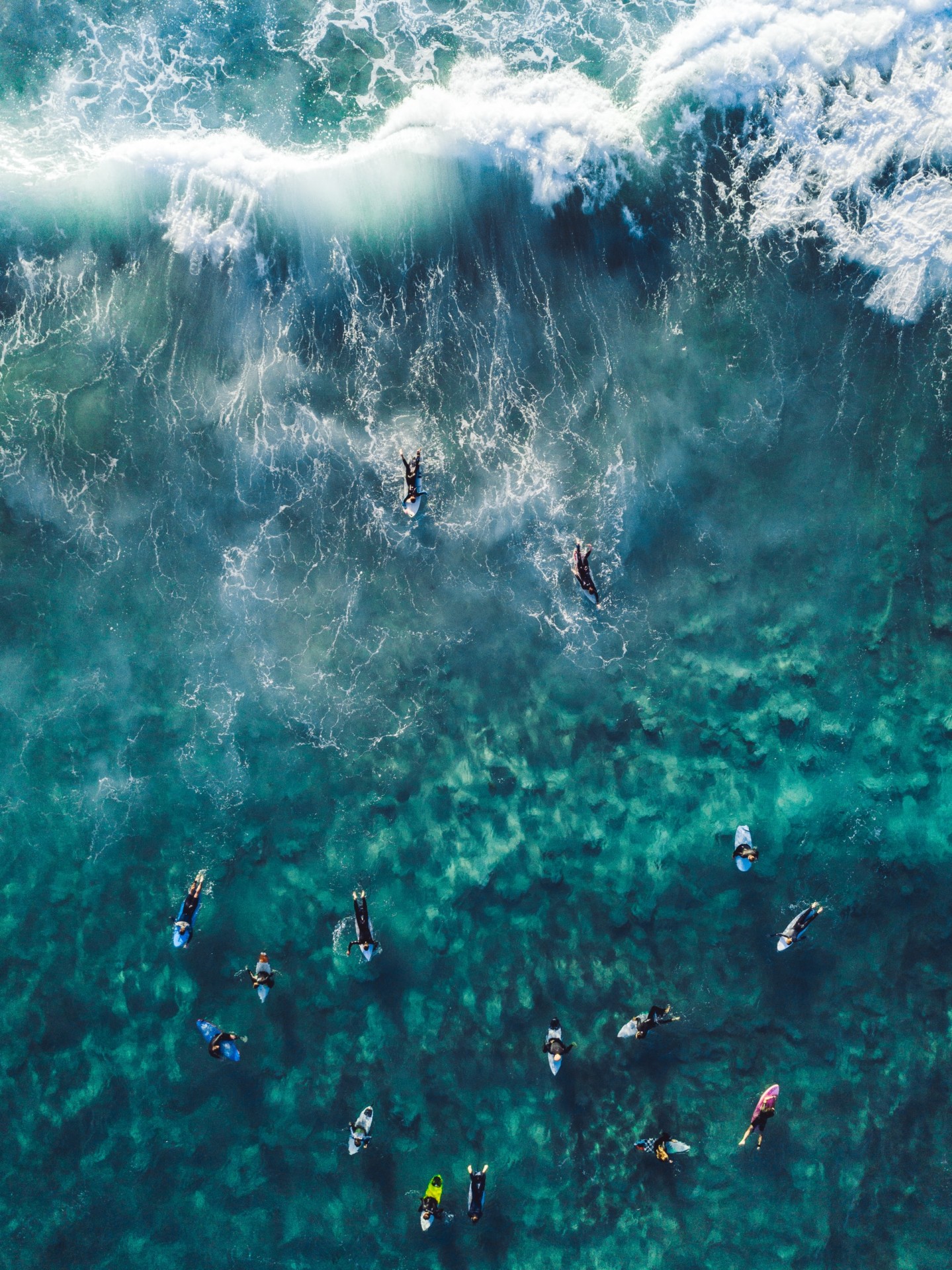
How to Surf Safely: 34 Crucial Tips (Every Surfer Should Know)
-
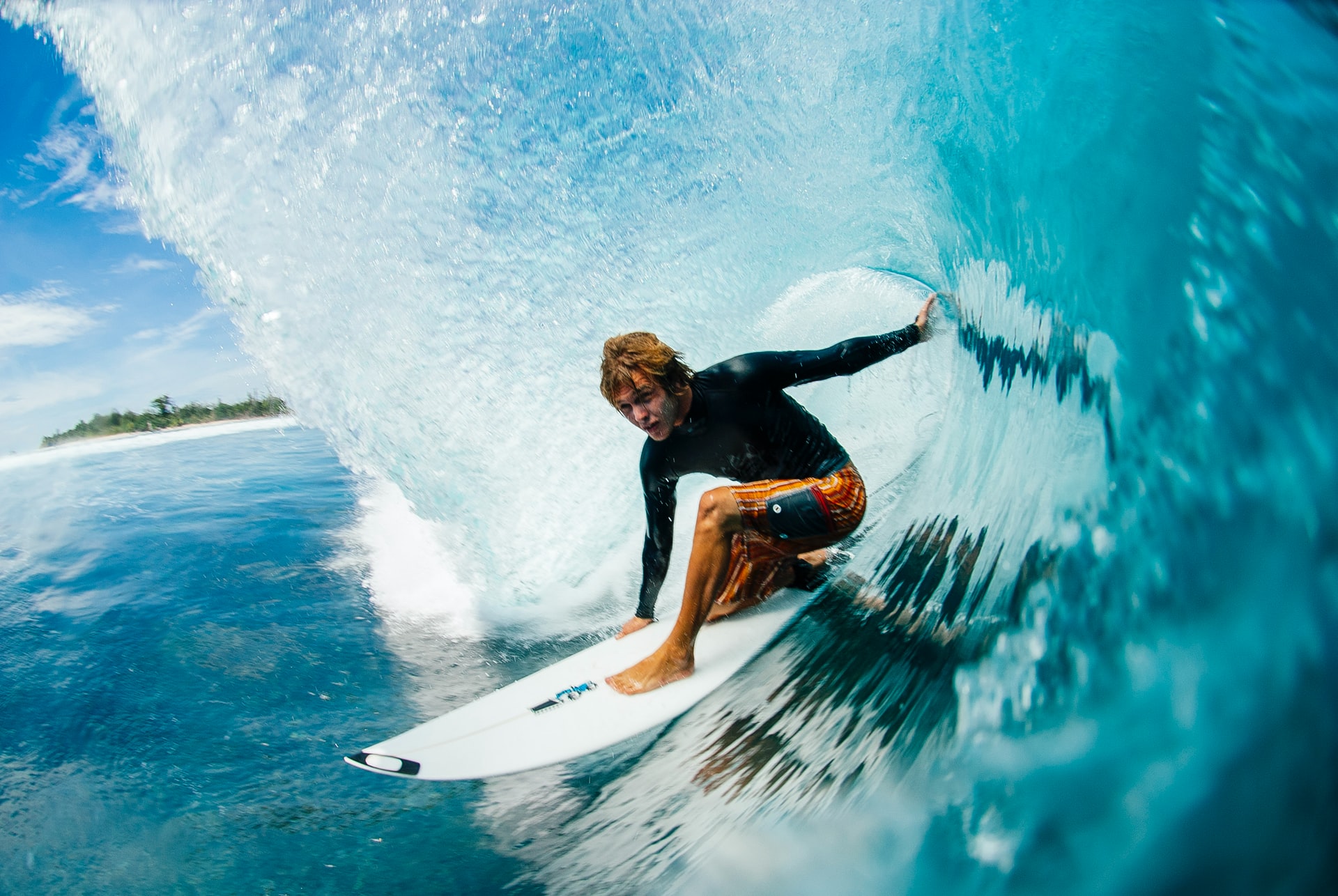
Do Pro Surfers Use Leashes? (+6 Reasons Why You Should Too)
-
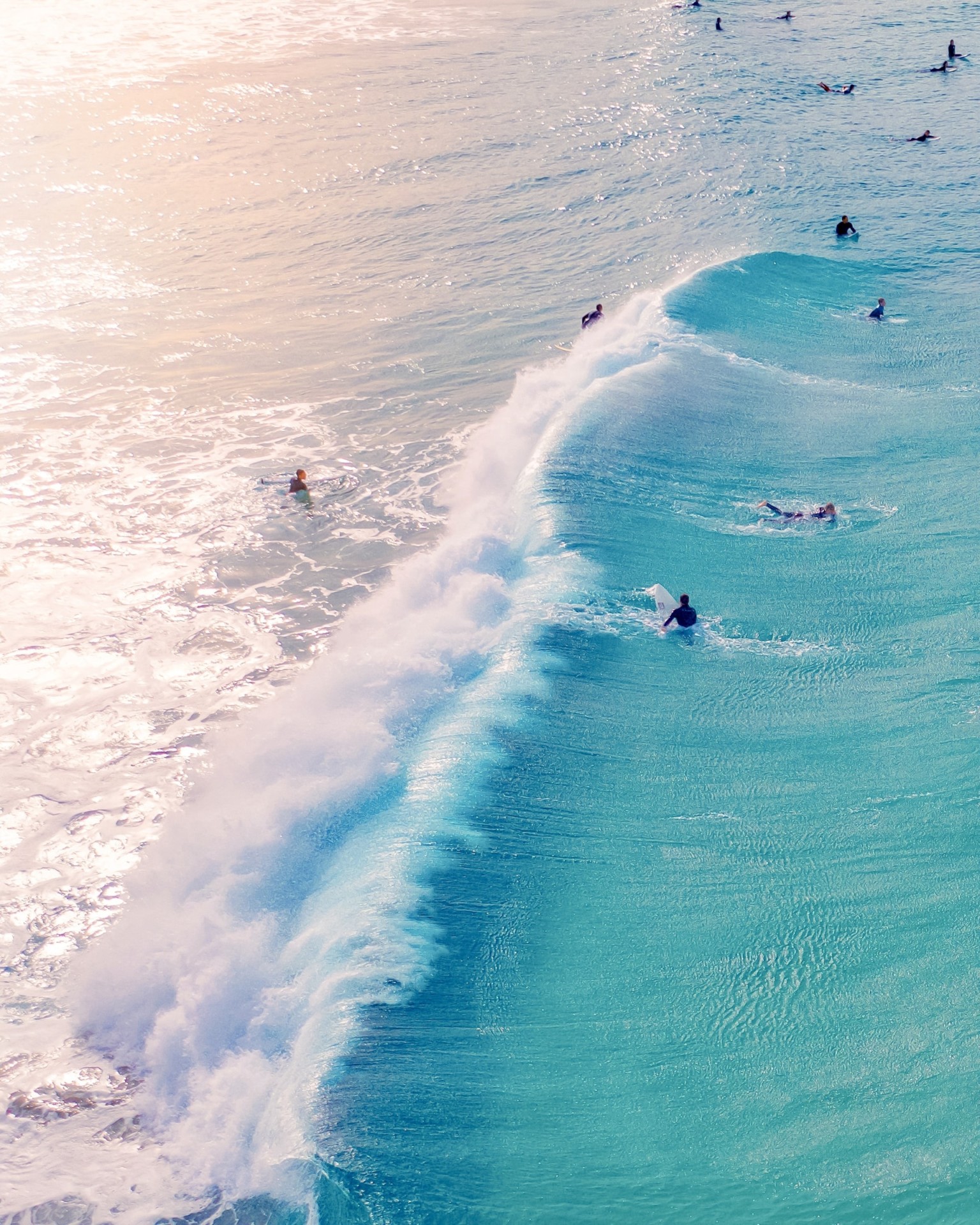
Do Many Surfers Drown? Here Are the Facts (+4 Common Reasons)
-
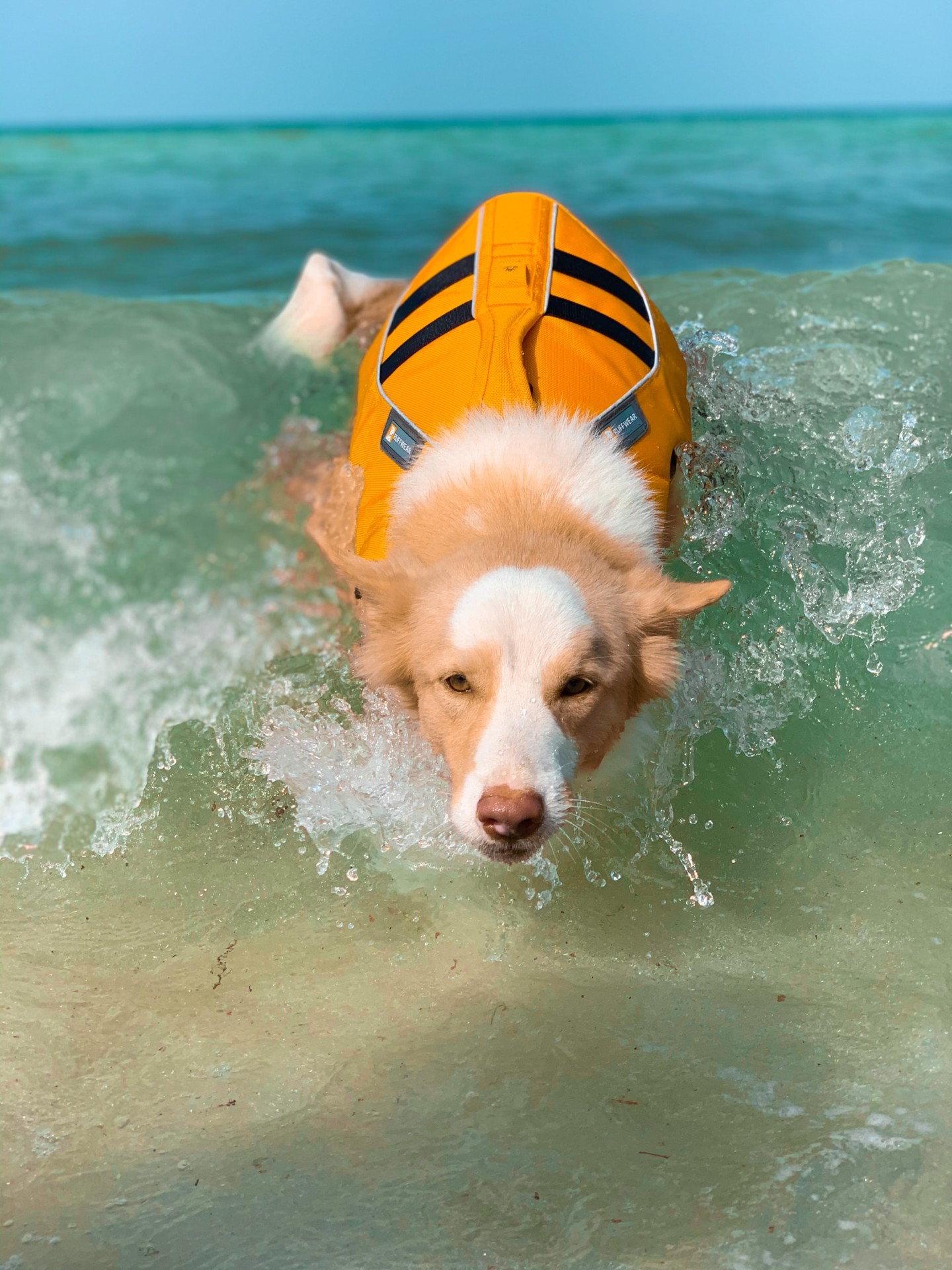
Do Surfers Wear Life Jackets? (7 Reasons Why They Don’t)
-
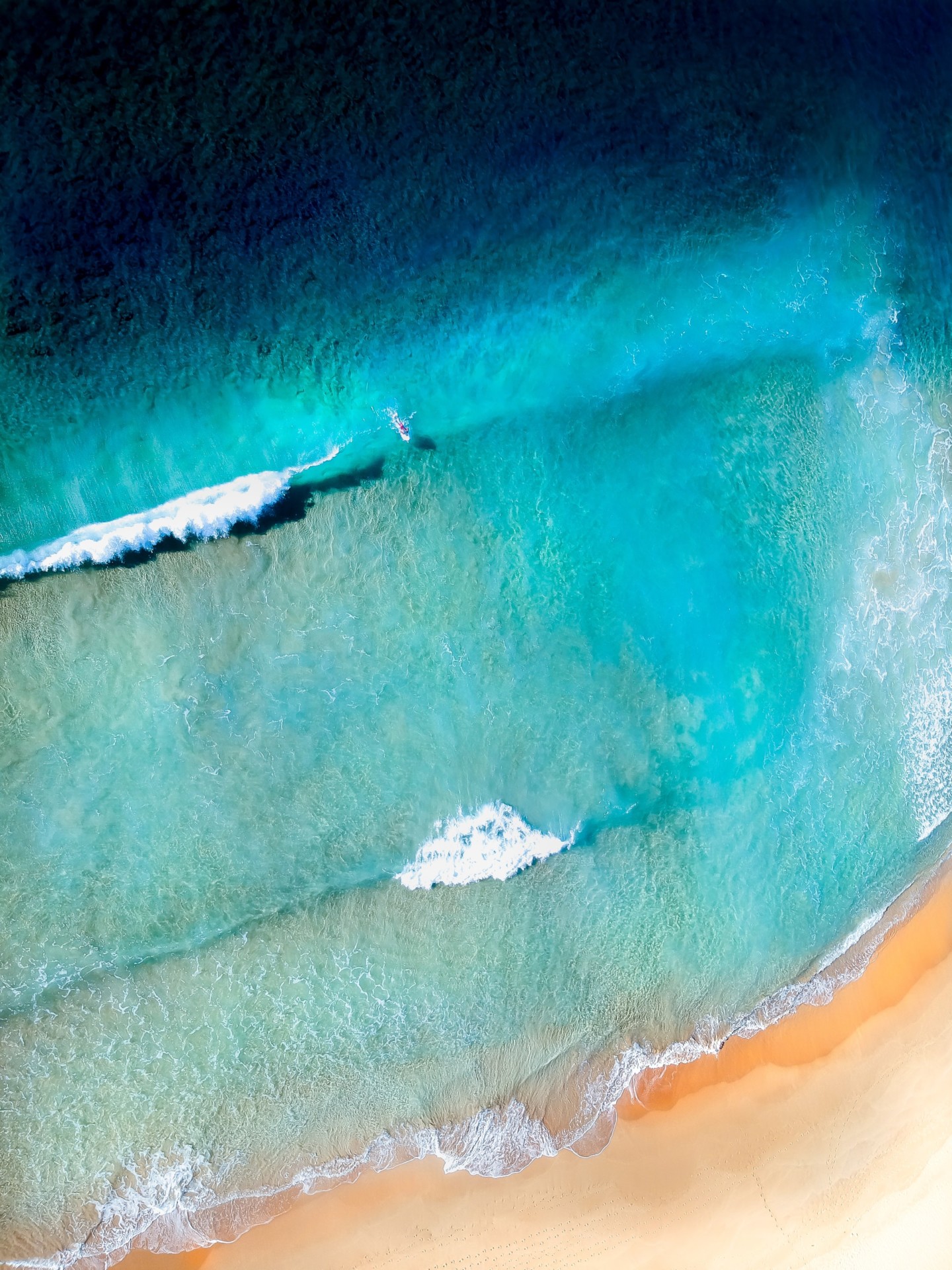
Do Surfers Like Rip Currents? (& How to Use Them Safely)






